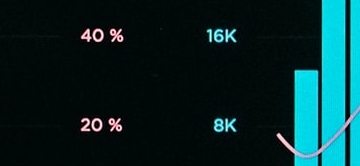The airline industry is at a standstill. The situation is so serious that we could not avoid using public debt to cushion the shock. In 2008, during the crisis, economists disagreed over the need for public money to rescue the financial system, today the debate is over and it’s clear that there is an urgent need for cash.
Very large sums have been announced by the French government to save businesses: €45bn for the deferral of all taxes except VAT up to three months, the deferral of rent payments and invoices, and the financing of partial unemployment. A €300bn guarantee has also been announced on bank loans to guarantee 90% of the sums borrowed by companies from their banks. Despite this, it is difficult to predict today what the impact will be on the sector, even if at TSE we are working under the assumption that the pandemic will be over in a few months.
It’s very difficult to know what’s going to happen to the French airline industry. President Macron said “we will save everyone” but in my opinion, tour operators will take longer to recover. We estimate that the French will lose on average 20% of their income in 2020, so tourism spending is the one which they will cut first. Even with state aid, this sector will take longer to restart, especially because many countries could still be fighting the disease once others have recovered, hindering tourism to these destinations.
In announcing the possibility of nationalization, France is bringing out the heavy artillery: Air-France-KLM is one of the companies that could be affected. The company has announced that it will cancel 90% of its flights for two months and temporarily lay off 80% of its employees. If the crisis stops in a few months, business activity will resume but tourism will again take longer to return. Right now, it’s impossible to say how long the company will be able to endure.
The airline industry would certainly benefit if China manages to restart its economy quickly, but this is far from certain. China has 1.5 billion inhabitants, but the confinement concerned “only” 500 million inhabitants. They will reopen the Wuhan area, and we do not know if the virus will spread elsewhere. If in a month there is no new outbreak in China, then we can be more optimistic because it would mean that once a country has been healed, it can prevent a new outbreak. We will know for sure in late April.
It's impossible to predict the overall impact on the French economy, but one thing is clear: with a country no longer working or producing, we are in a recession. Despite the state aid announced, people’s savings will take a hit. The markets have gone down, so investments have gone down, so our savings have already gone down.
The scale of the Covid-19 crisis is far beyond that of 2008; and we must remember that the crisis of 2008 was already much more serious than that of 1929. This time, the good news is that the economic-policy reactions have been faster but there is still so much uncertainty as to the duration of this crisis that it’s complicated to estimate its complete fallout.
TSE Mag #20: Spring 2020




